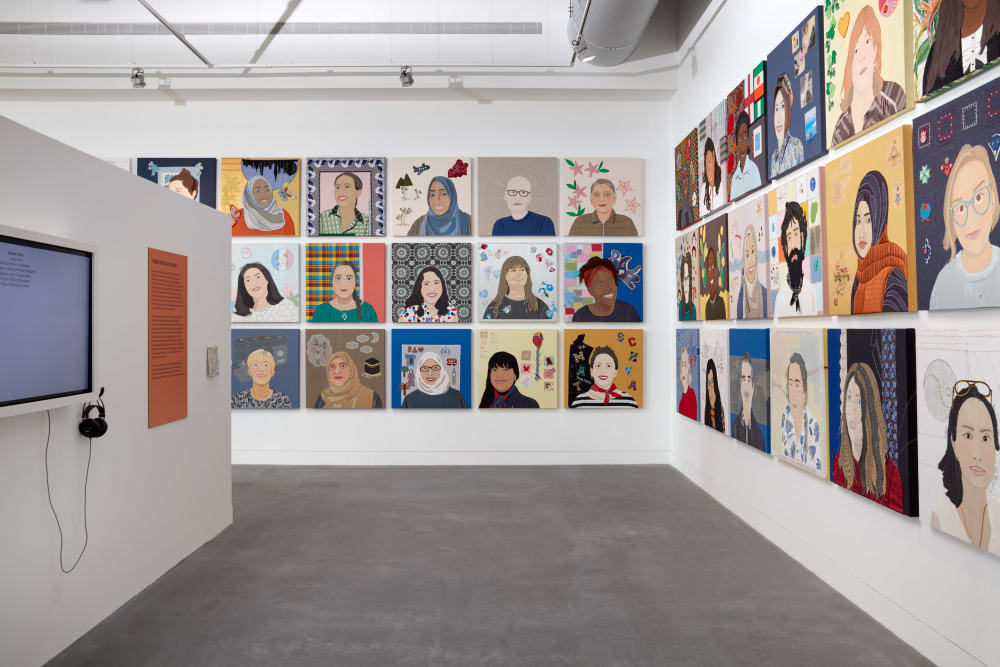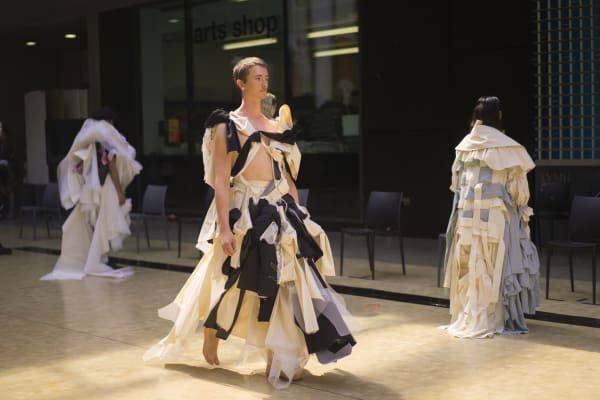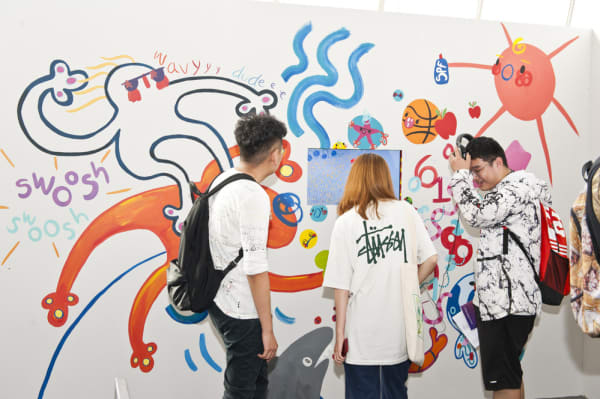Academic Differences
Different styles of teaching
The style of teaching and learning at UAL and in the UK may differ greatly from your home university.
In the UK there is a heavy emphasis on independent learning, self-directed study and autonomy. Because of this, students should not expect to be directed at every stage by academic staff. To help you make sense of this system, we have outlined key information about studying within the UK academic system.

Independent learning
Universities in the UK have a lot of independent learning and self-directed study. Independent learning helps students progress from a basic subject understanding towards a more in-depth understanding.
This approach places students on a pathway to becoming experts in their chosen fields. UK students are not required to study subjects outside their discipline.
Part of independent learning is self-directed study. Academics guide students through the learning process, but also allow students to develop their own styles and approaches. This allows students to explore areas in their field that may not be covered in the classroom.
Teaching and learning style
Teaching at UAL is practice-driven. This means that students receive hands-on instruction in studios. Students are expected to have a strong technique in place before they begin their term-time studies at UAL.
UAL students have individual and group tutorials, projects, industry briefs, seminars and lectures. Museum, gallery and studio visits are also part of UAL teaching.
At UAL, most students do a one-year Foundation course before they begin their 3-year undergraduate degree. By the time students enter the second year of their BA course, they have already gained a lot of specialist experience in their subject area.
Integrated study abroad students should expect fewer contact hours (or scheduled class-times) as this time is dedicated to subject exploration. While the levels of ‘contact time’ with academics may be a lot less than what is expected, this does not mean that there is less work. It is up to students to be independently motivated to follow up on topics and issues raised during class-time.
Semester study abroad students will have more contact hours. However, Semester students are still expected to explore their own discipline in depth in the same way as Integrated students.
Autonomous learning environment
‘Autonomous’ learning suggests that students develop their own area of expertise throughout their degree, which is supported by the varying teaching methods described on this page.
All study abroad students will be encouraged to develop their own research areas/areas of focus while here at UAL. Generally speaking, students are provided with an overview of learning expectations and are supported by academic staff to explore interest areas in their discipline. This approach aims to keep students motivated and engaged, but also offers students the chance to go into greater depths within their chosen field.
Units/Classes
In their first week, students will have introductory meetings with programme directors/‘course leaders’. During this meeting, students will receive class schedules, an overview of the programme, an introduction to the college and instructions for accessing course resources.
Integrated students will be placed onto a specific set of units (classes) that follows the full degree programme. Students take between 2 and 6 mandatory units, which is largely dependent upon the student’s chosen programme of study. Semester students have programme specific requirements that either place them onto pre-determined units or provide them with a greater flexibility more akin to the US academic structure.
Schedules are available upon arrival to the UK.
Please note that workshops and facilities are available to our Study Abroad students at the college they will be studying at. However, these are not open 24 hours. Students should check opening hours on their college's page.
Credits
UAL students receive on average 40 credits per term.
On an integrated programme, study abroad students could earn 40, 80 or 120 credits for 1, 2 or 3 terms, respectively. Credit is awarded to students who have demonstrated that they have achieved a specified learning outcome at a given level.
Please note, students on the semester and summer programmes receive credit differently to integrated programmes as these are tailored to study abroad students.
For more information on credits and assessments, please read about the UAL credits and assessments.
Record of study
All students who complete an Integrated, Semester or Summer Study Abroad programme will receive a Record of Study.
The Record of Study is different from a transcript as we do not award credits directly to Study Abroad students. It details the units taken, their credit value and the UAL letter grade. Credit transfer and grade equivalencies are awarded by the home institution and not UAL.
Study Abroad students will also receive a digital badge and downloadable certificate from Accredible after their Record of Study is issued. Badges can be shared in digital portfolios, used on CVs and added to social media profiles such as LinkedIn.
You might also be interested in...
-

'Normal World', Gabriella Engdahl, 2021 BA Performance: Design and Practice, Central Saint Martins, UAL, Gabriella Engdahl, Normal World
Visas and immigration
Make sure you meet any visa and immigration requirements for entering the UK.
-

Study Abroad Summer Fashion Show, image by Jieying Shao
-

Image credit: Ana Escobar
Living in London
Make the most of the British capital.
-

Design Management SSA
Study Abroad Awards, financial aid and scholarships
Apply for one of our Study Abroad awards or learn about external financial aid and scholarship opportunities.



